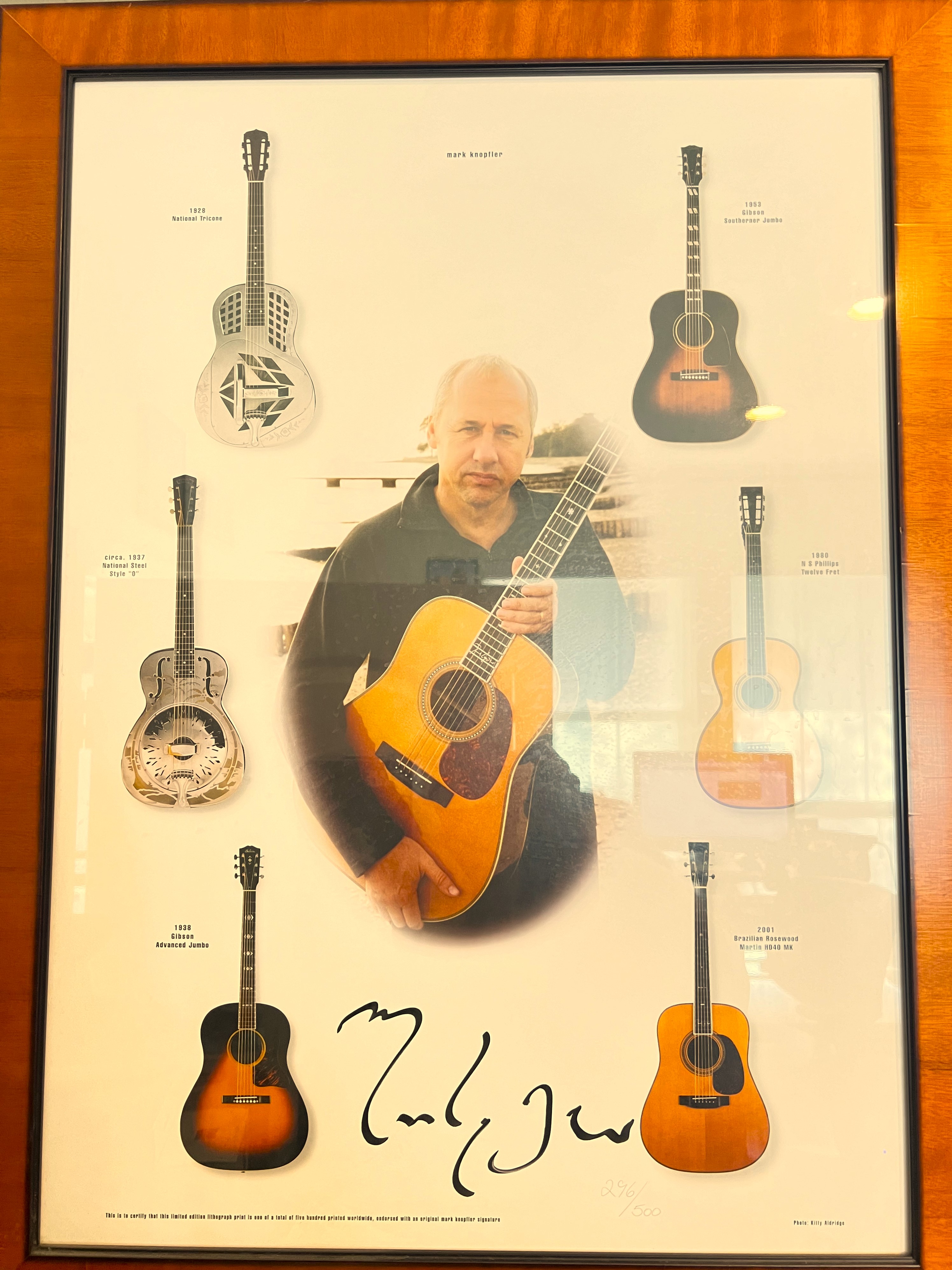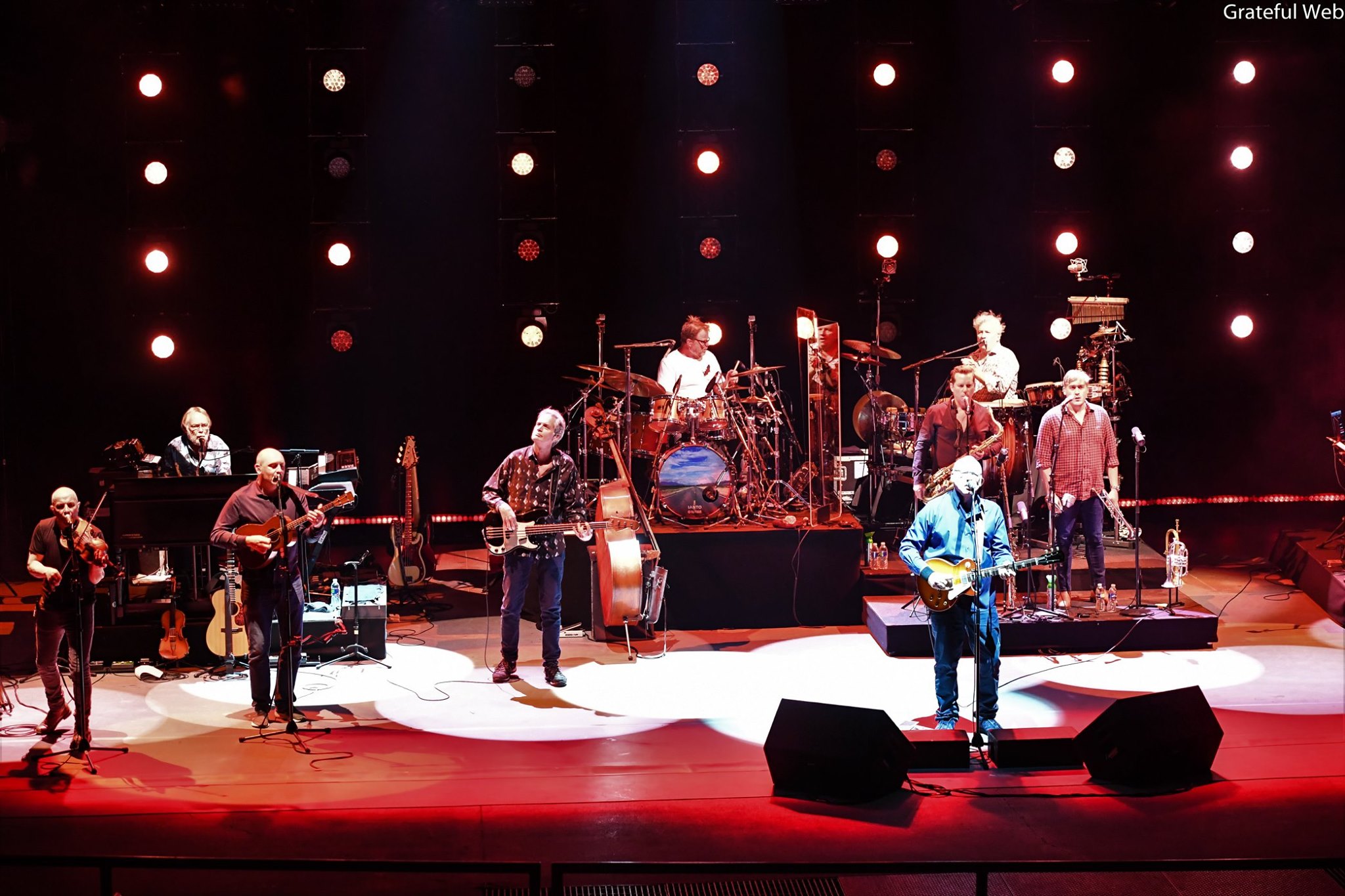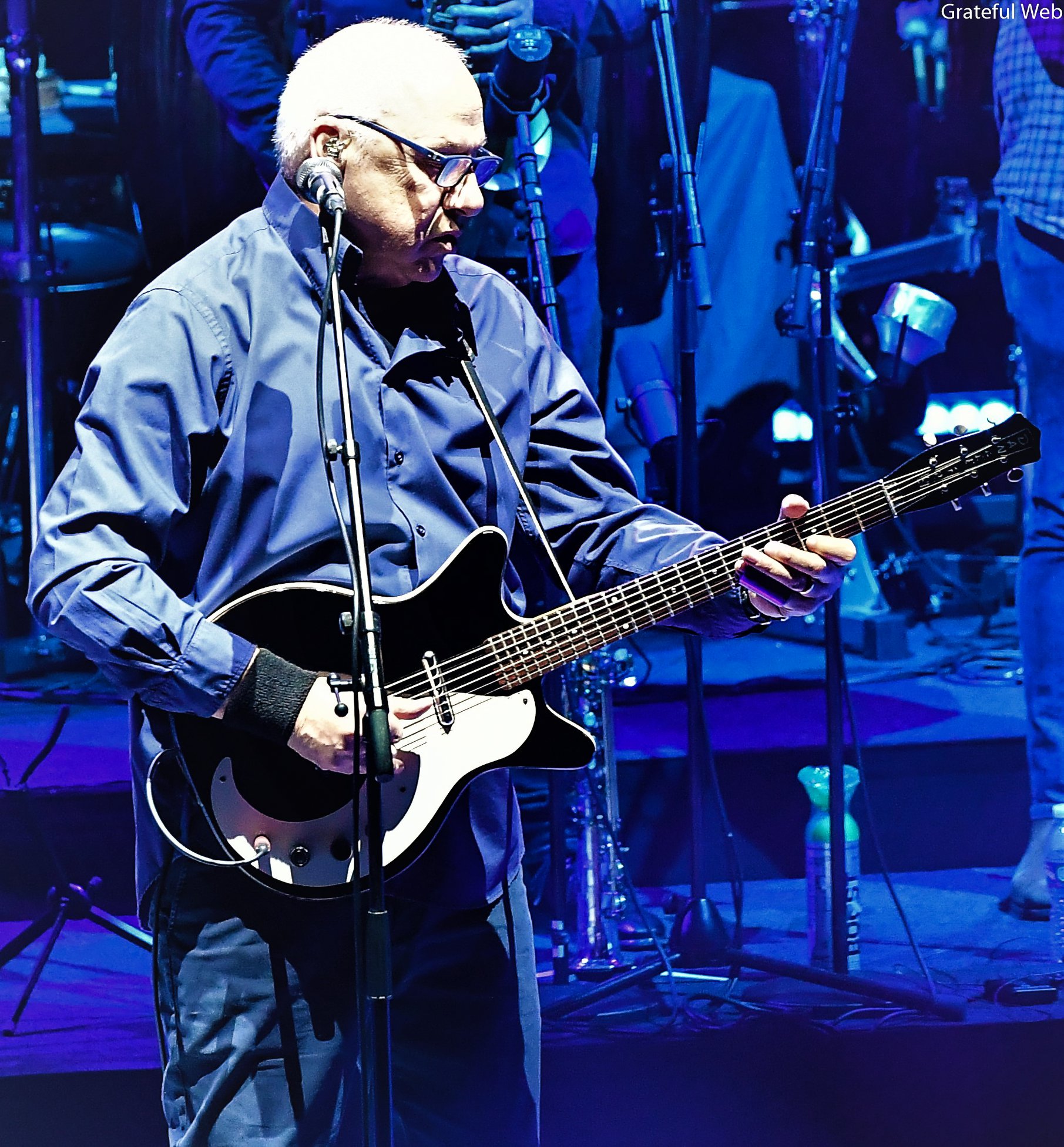In the dim-lit corridors of music history, where shadows waltz with echoes of timeless melodies, there emerges a figure whose artistry has carved deep grooves in the very fabric of sound. Today, August 12th, 2024, we at Grateful Web gather to honor the 75th revolution around the sun of Mark Knopfler, a musician whose hands have coaxed the strings of countless souls, and whose voice has whispered tales both grand and humble.

Mark Knopfler's journey began in the humble town of Glasgow, Scotland, in 1949. Born to a schoolteacher and an architect, one could say he was destined to build not with bricks but with chords and to teach not from textbooks but through the melancholic strains of his Fender Stratocaster. The flames of his passion were kindled early, igniting a love affair with the guitar that would span decades and leave a legacy that only the stars could rival.

In 1977, amidst the grit and grind of a world spinning ever faster, Knopfler, along with his brother David, set the stage for the world to hear a new voice, a new sound. Dire Straits was born, and with it came a wave that would sweep across the musical landscape with a quiet power that none could resist. Their eponymous debut album featured the hypnotic "Sultans of Swing," a song that still reverberates through the corridors of rock history like a ghostly refrain. It was in this piece that Knopfler's signature guitar style first emerged—a delicate dance of fingerpicking precision, a blend of folk, blues, and rock, where every note was a brushstroke on the canvas of silence.
The success of Dire Straits was not a flash in the pan but a steady burn, growing brighter with each album. "Brothers in Arms," released in 1985, remains one of the most hauntingly beautiful records of all time. The title track is a somber march, a dirge for the weary, a hymn for those who have seen the futility of war. Yet, within its chords lies a quiet defiance, a resolve that resonates with the spirit of those who seek peace in a world perpetually at odds with itself.

Mark Knopfler's songs are not mere arrangements of sound; they are stories, each with its own character, its own pulse. "Romeo and Juliet" is a tale of love's sweet sorrow, where the jangling guitar riff weaves through the narrative like a silken thread binding two souls. "Money for Nothing" is a biting satire wrapped in the guise of a rock anthem, its iconic riff slicing through the air like a knife through butter. "Walk of Life" is a jubilant celebration of perseverance, a reminder that no matter how rough the road, there is always a melody to be found.
And then there is "Private Investigations," a dark, brooding piece that unfolds like a film noir, with Knopfler's guitar serving as both the detective and the femme fatale. "Telegraph Road," a 14-minute epic, is a journey through the rise and fall of civilizations, a testament to the impermanence of all things, carried by a riff that rises and falls like the tide. "Tunnel of Love" is a rollercoaster of emotion, where the highs and lows are mirrored by the crescendos and decrescendos of Knopfler's guitar.
But to speak of Knopfler's genius is not to confine it to the world of Dire Straits. His solo career, begun in the late '90s, is a treasure trove of musical exploration. "Sailing to Philadelphia," the title track of his second solo album, is a historical ballad that drifts through time like a ship on a misty sea. "What It Is," from the same album, is a lively jig that captures the essence of his Scottish roots.

Knopfler's contributions to film scores highlight his versatility and his ability to evoke emotion without uttering a single word. His work on Local Hero is a masterclass in subtlety, with the main theme, "Going Home," becoming an anthem for those who long for the familiar comforts of the hearth. His score for The Princess Bride is a fairy tale in musical form, each note a step into a world of magic and wonder.
Yet, beneath the accolades, the sold-out arenas, and the platinum records, there remains a humility to Mark Knopfler that is as rare as it is genuine. He is a man who has never sought the spotlight, preferring instead to let his guitar do the talking. And talk it does—sometimes in whispers, sometimes in shouts, but always with a clarity that cuts through the noise of the world.

On this day, as we celebrate Mark Knopfler's 75th birthday, we do more than honor a musician; we pay tribute to a storyteller, a craftsman, a poet of the six strings. His music, like the finest wine, has only grown richer with age, and as we raise our glasses to him, we do so with the knowledge that his songs will continue to resonate long after the final note has been played. For in the end, it is not the man who endures, but the music—the melody that lingers in the air, like a whisper from a forgotten dream.






















